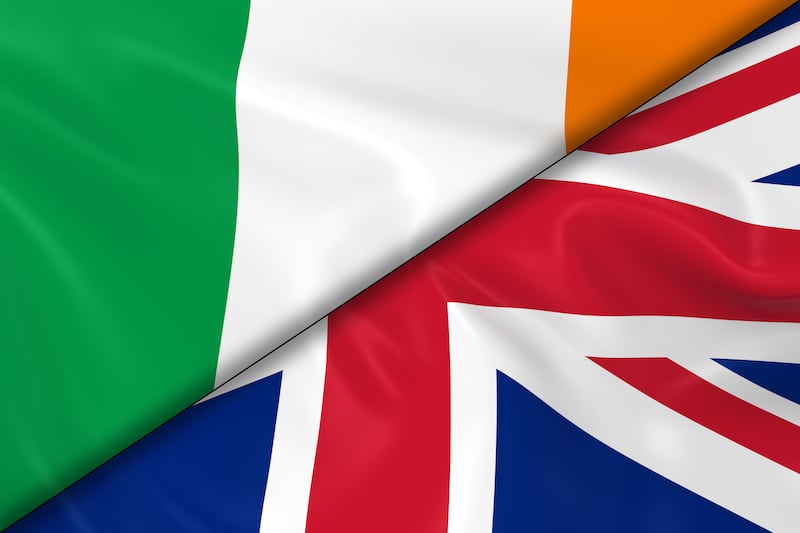While other countries hold general elections on the basis of social and economic policies, we tend to do things differently here. For us, a general election is more of a periodic opportunity to legally express our prejudices.
A rather sceptical view, you say, but in the current election campaign, it is hard to find political commentary which goes beyond analysing the election in constitutional terms.
Will it matter who wins East Belfast, Fermanagh or Lagan Valley? Will the result lead to one more house being built, one more child being removed from poverty, or one more school having more money? The answer, sadly, is no.
Welcome to the world of policy-free politics.
Including by-elections, this will be our 30th election since the 1998 Good Friday Agreement (GFA) at local, Stormont and Westminster level. Unlike other countries, electoral support here does not depend on the performance of those in government.
Our parties campaign on flags, thereby allowing them to avoid responsibility for poor government or, in many cases, no government at all. Take health as an example.
- Patience wearing thin as programme for government delayed again - The Irish News viewOpens in new window
- Patrick Murphy: The Assembly may be ‘back to work’, but it’s not workingOpens in new window
- Dear Michelle and Emma. You’ve done the PR. Now when are you going to tackle public services? – Patrick MurphyOpens in new window
In 1997, the UUP’s Roy Beggs complained in Westminster that although most of the hospital waiting list here had been largely cleared the previous year, tackling the backlog meant 800 people had to wait 18 months for hospital admission.
In the same debate, Seamus Mallon was told that one person was waiting 15 months for an appointment at Daisy Hill Hospital and another was waiting over a year. Scandalous, we all thought at the time.
Today’s waiting list for elective hospital admissions across the North stands at 550,000. That’s an increase of about 18,000 for every election.
The difference between 1997 and now is the GFA, which put political parties before people by ignoring social and economic issues.
The Agreement was effectively a flag wavers’ charter, guaranteeing the two most sectarian parties perpetual power in a compulsory coalition. That’s why we are facing into another referendum on flags.

Outgoing health minister Robin Swann said the current drastic spending cuts in healthcare will leave a £189 million budget deficit this year. That will probably mean 400 fewer acute hospital beds, 1,200 fewer staff, a reduction of 1,100,000 hours of homecare and 500 fewer care home beds. Things can only get worse.
And what do news and current affairs programmes cover on television? They wonder whether the DUP can hold East Belfast. There are currently five food banks in East Belfast. There will still be five, no matter who wins the seat.
Sinn Féin MPs do not even go to Westminster. Well, they do and they don’t. SDLP leader Colum Eastwood says of SF: “They come once a month and sit and have coffee in the canteen.” Oh and they get money from the British government for doing that. (Britain’s most expensive coffee.)
The party’s defence is that the electorate know they intend to abstain. However, if it claims it has a First Minister for all, why do its MPs not represent everyone?

In the seven constituencies where Sinn Féin was successful in 2019, it received 140,000 votes. However, in those same constituencies, 185,000 voters supported parties which wanted to attend Westminster. They have no-one to represent them in parliament. It’s democracy, but not as we know it.
One Sinn Féin explanation is that they are not British MPs, they are Irish MPs. Good, point – or it would be if their MEPs did not sit in the European Parliament in Brussels and Strasbourg. Is that because they are actually Belgian and French MEPs and not Irish?
The true nature of our election will be most clearly illustrated in Fermanagh-South Tyrone, which will essentially come down to a sectarian headcount. Twenty-two per cent of children in Fermanagh live in poverty. No matter which sectarian party wins, 22 per cent of children there will still be in poverty.
Will it matter who wins East Belfast, Fermanagh or Lagan Valley? Will the result lead to one more house being built, one more child being removed from poverty, or one more school having more money?
Never mind that, some will say, it will fairly annoy the other crowd to lose. So July 4 will afford us our democratic right to legitimately record our sectarianism.
Like a dancing competition on television, our politics are a sort of showbusiness for the political classes. Welcome to another edition of Strictly Come Voting, in which the performers know that no matter what they do, they can always rely on the deprived to vote for more deprivation.
So on July 4, vote for your favourite dancer. Just don’t expect it to make any difference to what can only be described as our politically primitive society.










